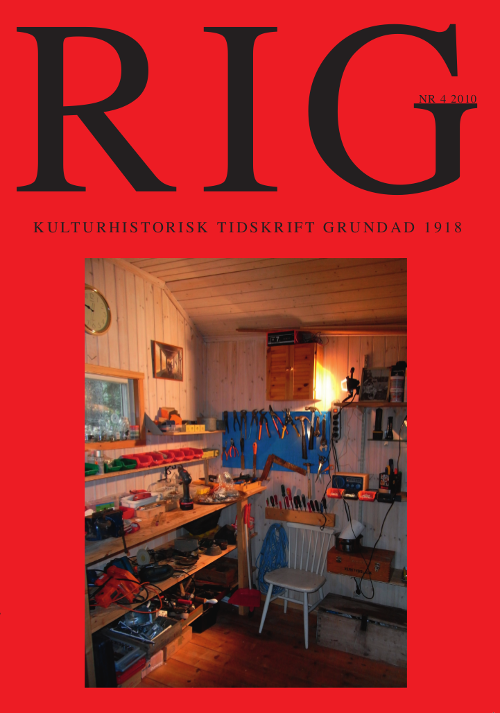Den nazistiska raspolitiken – ”en förolämpning mot majoriteten av det tyska folket”. 1930-talets föreställningar om vetenskap, politik, kultur och ras i det svensk-tyska samarbetet inom folkminnesoch folklivsforskningen
Abstract
Nazi Race Politics – “An Insult to the Majority of the German People”. Ideas about science, politics, culture and race in the Swedish-German cooperation in Folklore and Ethnology during the 1930s
The aim of this article is to study the impact of the discursive struggle about the meaning of science, politics, culture and race in the Swedish-German cooperation in the disciplines Folklore and Ethnology during the 1930s, with an analysis of one example, the correspondence between two folklorists, Carl Wilhelm von Sydow (1878–1952), professor in Folklore in Lund, and Karl Kaiser (1906–1940), docent in Folklore/Ethnology (Volkskunde) in Greifswald. The correspondence is analyzed with a critical discourse analysis.
The article is part of my postdoc-project with the title: “Science and Politics: Cooperation between Swedish and German Ethnology 1930–1960”. The project deals with the relationship between politics and the science of ethnology/folklore, that is, the influence of the political environment on the production of knowledge.
The correspondence between Kaiser and von Sydow shows different interpretations of the terms mentioned above. Von Sydow, e.g., was critical of the development of his discipline in Nazi Germany, while Kaiser explained it as a temporary problem, caused by the “revolution” in Nazi Germany. Von Sydow saw “Germanic” more as a cultural term, while it was defined as a racial category in Nazi Germany. Both Kaiser and von Sydow talked about “Nordic” as a racial term, but with different meanings. While von Sydow understood it as a race equal other races, Kaiser described it as a good example for “pure race”.
Preliminary results in my project are that several leading Swedish folklorists and ethnologists were critical of Nazism and the scientific development in Nazi Germany. Their critics were, however, mostly expressed in a scientific context, e.g. when they chose not to take part in some conferences or did not cooperate with some German colleagues because of their Nazi conviction. But they continued cooperating with Nazi scientists in some international organizations, e.g. with the International Association for European Ethnology and Folklore until WWII.

